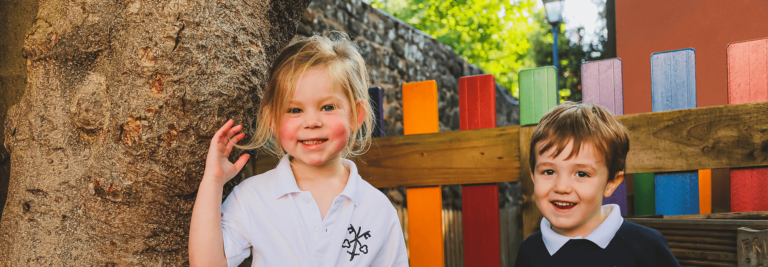Dear Parents, Guardians, Relatives and Friends,
Back home from school, when I was about 12, my father was driving the family through an area of Glasgow that seemed to me unremarkable. He said to me: “Do you see these windows in the houses all along this road, with those tell-tale curtains?” Obviously, I hadn’t a clue what he was talking about. Yes, the windows had curtains, most of them with ornate lace edges to them. Rather than being straight, they were draped in sweeps across the window. “These are Jews’ houses,” my father commented as if he was breaking a state secret. “… and the curtains tell you that.” From that moment I became uncomfortable about how, iin the West of Scotland at that time, Jews were often mentioned in a tone of voice that pointed up their ‘difference’. A golf club in Scotland didn’t accept Jews application for membership until the 1970s. Within myself, I’m all too aware of the potential dangers of anti-semitic attitudes. [The Photograph is of a Jewish Synagogue in Glasgow]
Throughout the Christian centuries, the story of the Jews has been marked by many horrific exclusions and hideous exterminations. The Holocaust of the 20th Century was an attempt to destroy the Jews in what was chillingly called the ‘final solution to the problem of the Jews’. The Christian churches cannot evade the responsibility for having been at least part of this anti-semitic history. Indeed, from early Christian times, there were those who accused Jews in Palestine of being the ‘killers of God’, as Jesus was called the Son of God. This poisonous distortion can still be found today. Hence the importance of Holocaust Memorial Day.
Jesus was a Jew and died a Jew. The 25th January is the Feast of the Conversion of St Paul. Paul was not only Jewish, but he was a strict Pharisee, with a strong sense of Jewish law and Jewish religious practice. In other words, it’s essential to remember that the origins of Christianity were Jewish, expanding beyond that, of course, but remaining firmly rooted in the history of Judaism itself, despite the countless episodes of ecclesiastical anti-semitism. Like many of you, I imagine, I’ve been deeply affected by Jewish artists, musicians, writers, philosophers and theologians. [Can you name the artists above…?]
The Churches Fellowship for Psychical and Spiritual Studies was founded by Dr Martin Israel, priest and pathologist. As a Jew, he too survived the ravages of the Holocaust. For years I have been part of the Fellowship, which offers resources to those who wish to discover the depths of the spiritual life within and notice the way the Spirit of God can be revealed through psychical experiences. Martin Israel, however, was not an easy man, as he had little patience for mindless chatter and the wasting of energy and time over trivialities. Given his Jewish background such awkwardness, if that’s what it was, was hardly surprising. He taught me to listen deeply to what others are saying and feeling and give as much objective empathy as I am capable. However, what I have still to learn is to avoid being overly focused on myself when listening to others. He was truly a powerful exponent of what is now known as ‘person-centred therapy’.
At King’s College, London, where I read theology in the 1960s, my tutor in my second year was Dr Ulrich Simon. As a boy he belonged to non-practising Jewish family, living in Berlin. The family’s close neighbours were the novelist Thomas Mann and, more significantly for Ulrich, Dietrich Bonhoeffer, a theologian and pastor. It was the latter that woke Ulrich up to his Jewish spiritual roots and the place of Christ’s grace in the midst of Nazism. Ulrich’s father was killed in Auschwitz, leading to some of the family escaping to London. He was ordained later as an Anglican Priest and was a leading authority on the Prophet Isaiah. His greatest book, in my view, is ‘The Theology of Auschwitz’. In it Dr Simon portrayed the suffering of God intimately with those experiencing the Holocaust, through that Isaian image of ‘The Suffering Servant’. Jesus the Christ is to be discovered where suffering is greatest, namely amidst persecution and where ‘difference’ has divided and poisoned humanity. Ulrich Simon’s face was marked by the experience of his childhood and the mass hatreds of the 20th century. The marks of Christ.
A recommendation for you on the subject of the Holocaust… For me, one of the greatest novels on the subject of The Holocaust was written by André Schwartz-Bart – ‘The Last of the Just’. ‘The Just’ are particularly gifted people who live at the heart of Jewish communities. In Hebrew: The Tzaddikim. The Just Man or Woman knows what is happening at the heart of their community and ‘carries’ that story deep within them. They are not priests, or rabbis or hold any official role. The book deals with ‘The Last of the Just’; one of the Tzaddikim who goes into the Gas Chambers of Auschwitz with a group of Jewish children clinging to him. Yes, this is a harrowing book, but one written with compassion and a sense of hope in those who often go hidden but who may be stopping our culture from breaking up. The key is that the ‘just’ do not know each other. Who knows, there may be one nearer to you without you knowing it? Of course, it could be you – and you don’t know it! Or putting it another way, it may be worth living as if you were! That’s the Christ-like life.
With my blessings and prayers,
Bishop Martin
School Chaplain






















